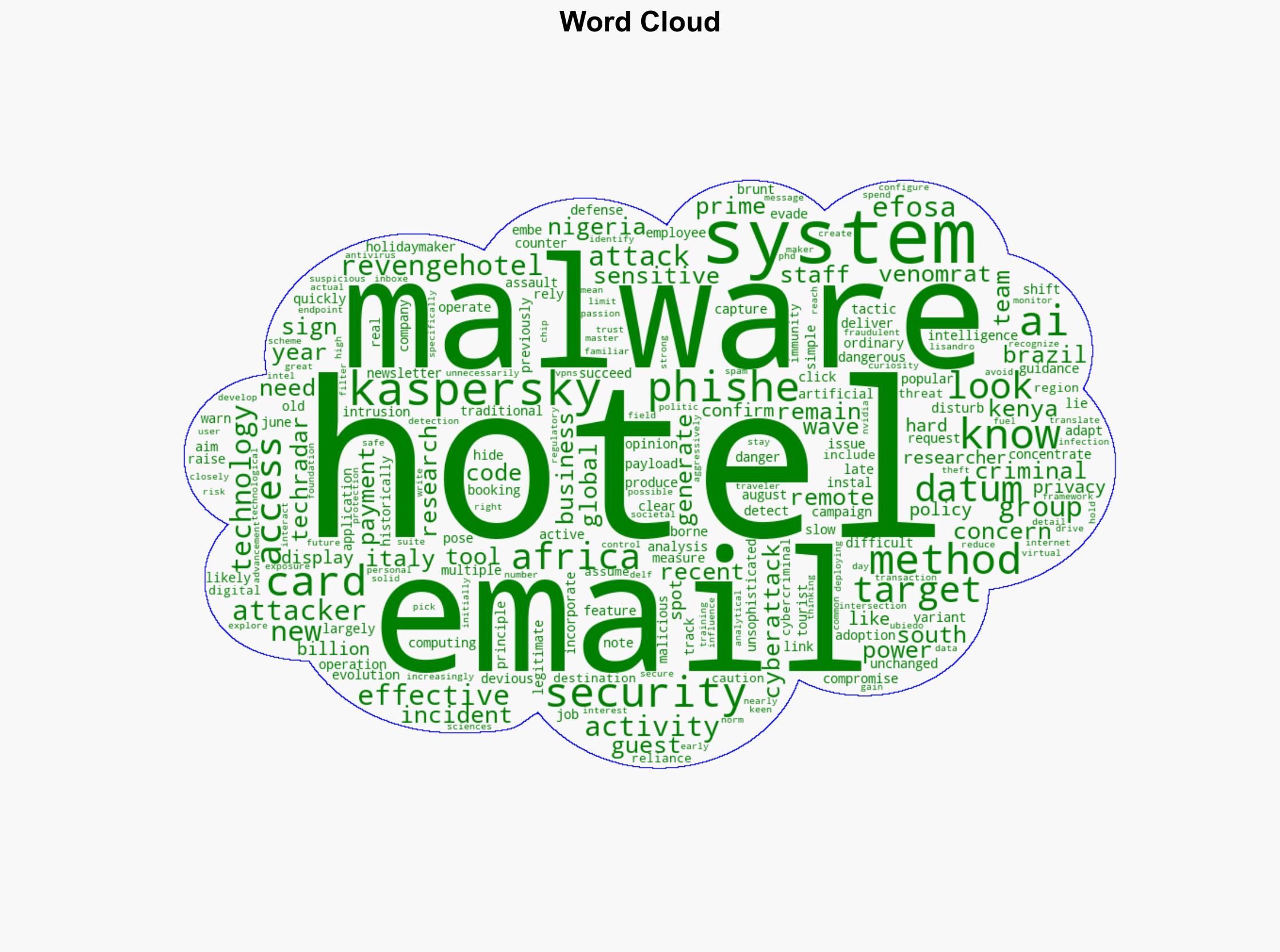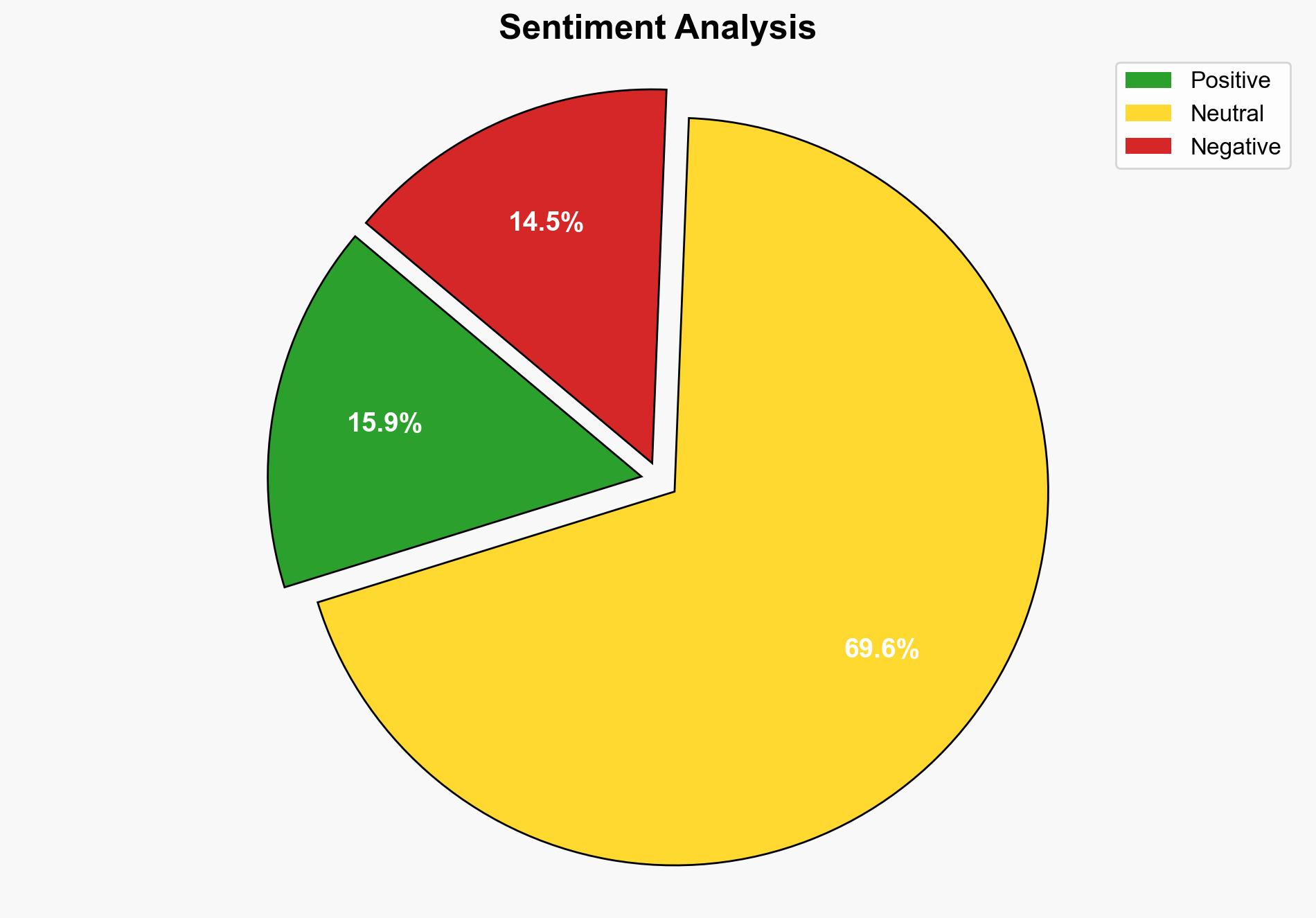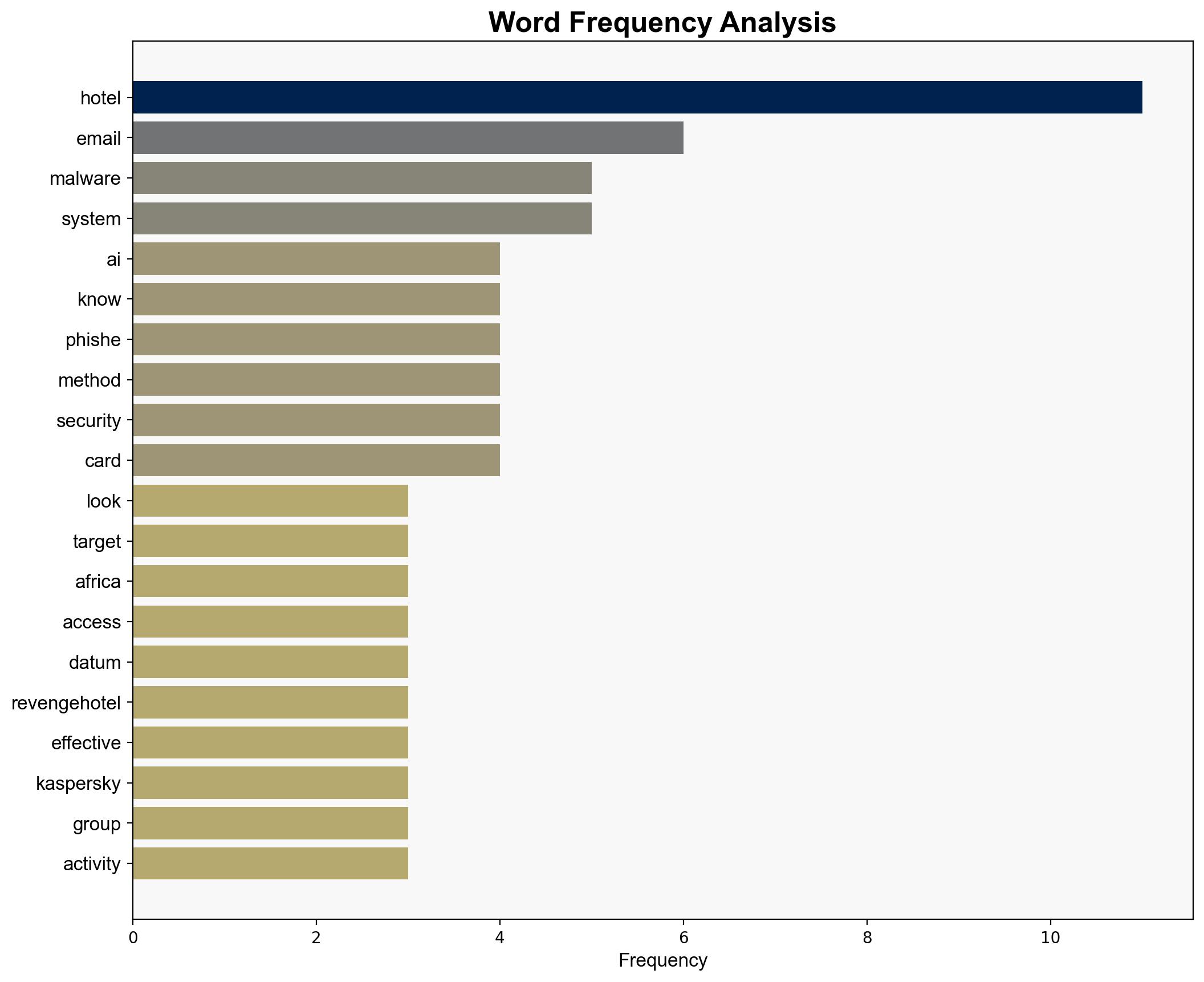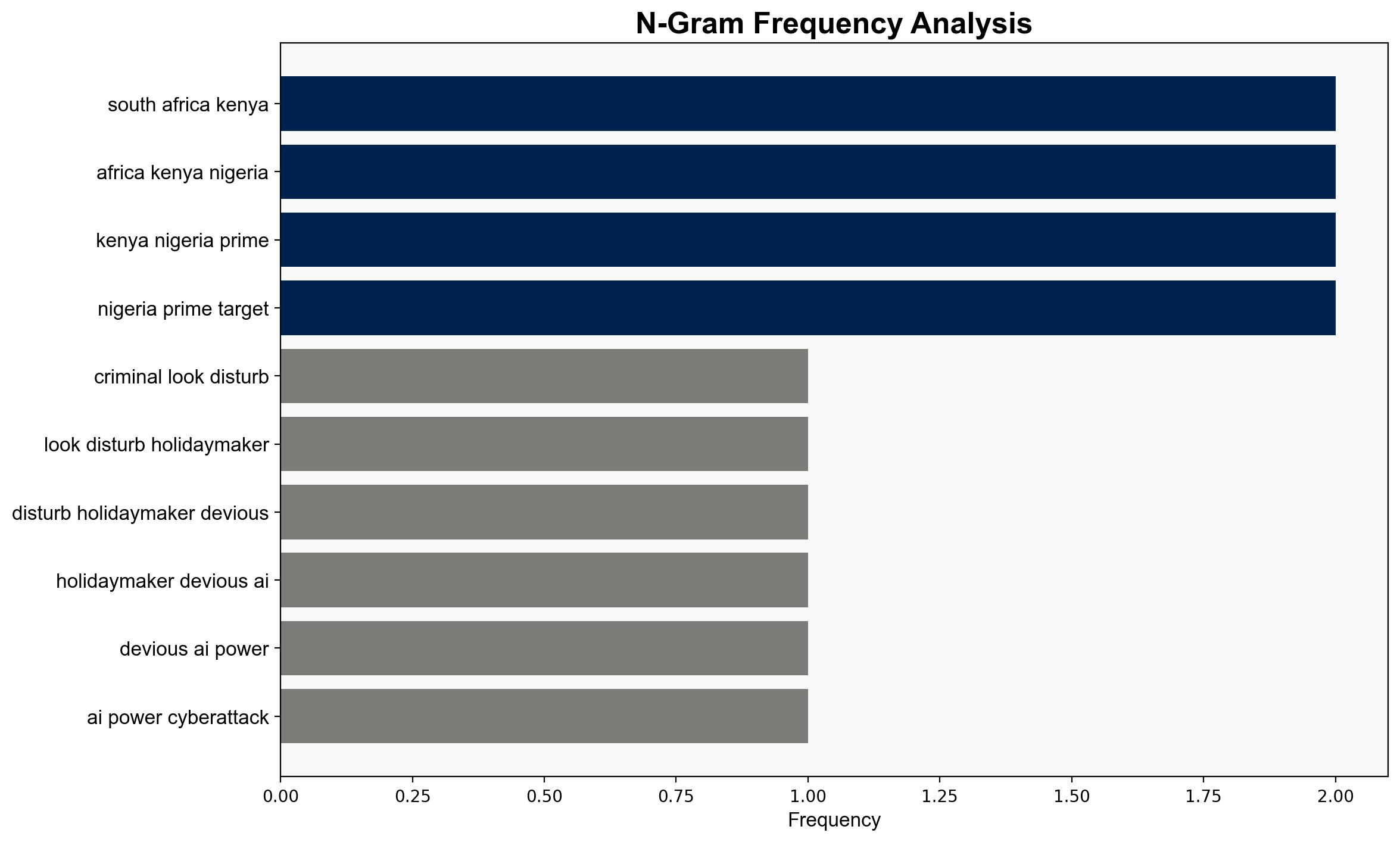Criminals looking to disturb holidaymakers with devious AI-powered cyberattacks – here’s what you need to know – TechRadar
Published on: 2025-09-30
Intelligence Report: Criminals looking to disturb holidaymakers with devious AI-powered cyberattacks – here’s what you need to know – TechRadar
1. BLUF (Bottom Line Up Front)
The most supported hypothesis is that the cybercriminal group known as RevengeHotel is leveraging AI-generated malware to enhance their phishing campaigns targeting hotels, posing a significant threat to the hospitality sector. Confidence level: Moderate. Recommended action: Strengthen cybersecurity measures in the hospitality industry, focusing on AI-driven threat detection and employee training.
2. Competing Hypotheses
1. **Hypothesis A**: RevengeHotel has significantly evolved its tactics by incorporating AI-generated malware to increase the sophistication and effectiveness of their cyberattacks on hotels globally.
2. **Hypothesis B**: The observed increase in cyberattack sophistication is due to a broader trend in cybercrime, with multiple groups adopting AI tools, and RevengeHotel is just one of many actors involved.
Using Analysis of Competing Hypotheses (ACH), Hypothesis A is better supported by the specific mention of RevengeHotel’s activities and Kaspersky’s tracking of their methods. Hypothesis B lacks direct evidence linking other groups to the same level of AI integration.
3. Key Assumptions and Red Flags
– **Assumptions**: It is assumed that AI-generated malware is significantly more effective than traditional methods. It is also assumed that RevengeHotel is the primary actor in these attacks.
– **Red Flags**: The report does not provide detailed evidence of AI’s role in generating the malware, nor does it explore the possibility of other groups using similar techniques.
– **Blind Spots**: Potential underestimation of other cybercriminal groups’ capabilities and the broader adoption of AI in cybercrime.
4. Implications and Strategic Risks
– **Economic Impact**: Increased cybersecurity costs for hotels and potential loss of consumer confidence.
– **Cybersecurity Risks**: Escalation in AI-driven cyberattacks could outpace current defense mechanisms, leading to widespread data breaches.
– **Geopolitical Risks**: Targeted attacks on tourist-heavy regions may affect international relations and tourism-dependent economies.
– **Psychological Impact**: Heightened fear among travelers regarding data security when staying at hotels.
5. Recommendations and Outlook
- Implement advanced AI-driven cybersecurity solutions to detect and mitigate AI-generated threats.
- Conduct regular training for hotel staff to recognize and respond to phishing attempts.
- Scenario Projections:
- Best Case: Hotels adopt robust cybersecurity measures, significantly reducing successful attacks.
- Worst Case: Cybercriminals continue to innovate, leading to widespread breaches and financial losses.
- Most Likely: Incremental improvements in cybersecurity with periodic successful attacks.
6. Key Individuals and Entities
– Lisandro Ubiedo, Kaspersky researcher, highlighted the risks associated with AI-generated malware.
– RevengeHotel, the cybercriminal group, is identified as a primary actor in these attacks.
7. Thematic Tags
national security threats, cybersecurity, counter-terrorism, regional focus





